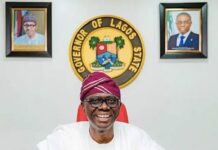Nigeria’s credit rating has been upgraded by Moody’s Investors Service from Caa1 to B3, with a stable outlook—an affirmation of the country’s bold economic reforms and improving fiscal fundamentals under the administration of President Bola Ahmed Tinubu.
The upgrade, announced this week, reflects growing confidence in Nigeria’s macroeconomic direction, following sustained efforts by the federal government to stabilize the economy through tax reforms, exchange rate liberalization, and improved fiscal transparency.
Moody’s credited the rating boost to significant improvements in Nigeria’s external and fiscal positions, including rising external reserves, a more flexible foreign exchange regime, and policies aimed at correcting macroeconomic imbalances.
“This recognition from Moody’s affirms the effectiveness of our reform agenda,” said Mr. Wale Edun, Minister of Finance and Coordinating Minister of the Economy. “It is a testament to the determination and coordinated efforts across government institutions—including the Central Bank of Nigeria—to restore macroeconomic stability, attract investments, and foster inclusive growth.”
This is the second upgrade Nigeria has received from Moody’s during President Tinubu’s tenure. In December 2023, the rating agency revised Nigeria’s outlook from Caa1 Stable to Caa1 Positive, setting the stage for the current ratings improvement. It also follows Fitch Ratings’ recent upgrade of Nigeria’s credit profile from B- to B, with a similar stable outlook.
The Tinubu-led administration has introduced a range of policy measures to address long-standing economic challenges. These include enhanced revenue generation, better public financial management, and strategic partnerships designed to attract private capital, especially for infrastructure development.
The Ministry of Finance noted that the B3 rating comes at a critical time as Nigeria intensifies its pursuit of sustained, broad-based economic growth. The government reaffirmed its commitment to prudent debt management, sound fiscal policy, and deeper collaboration with both domestic and international partners to strengthen Nigeria’s credit profile and investment appeal.














